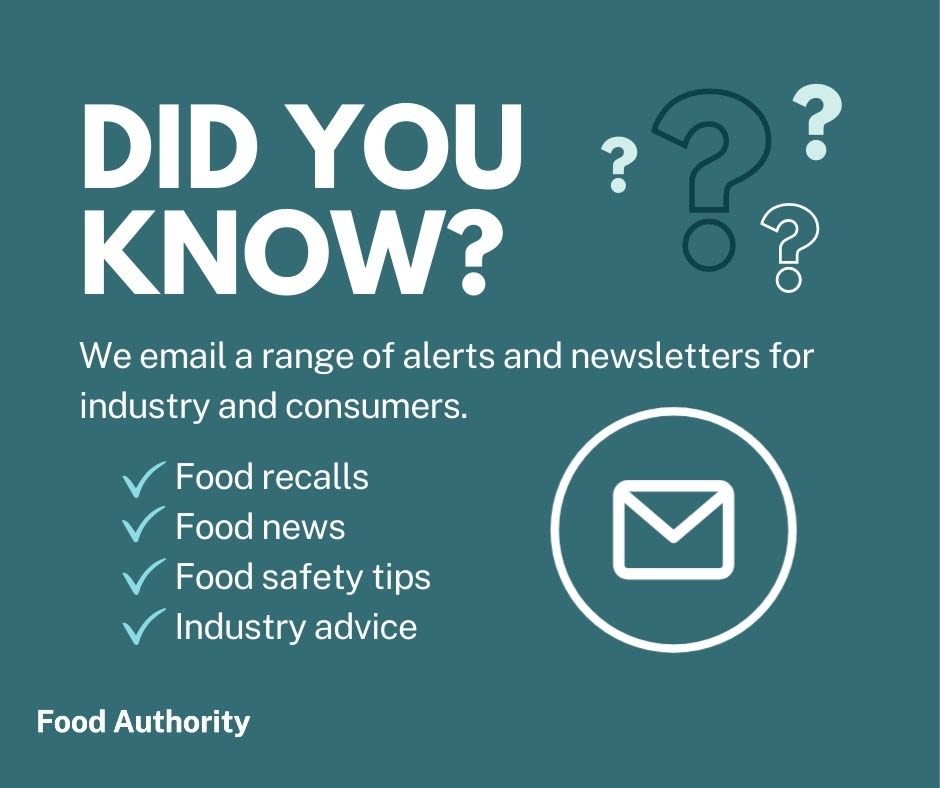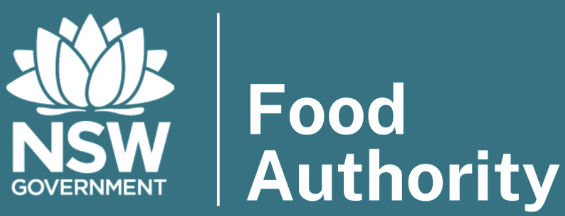Foodwise Autumn
Autumn 2024 | Issue 67

Foodwise - Autumn edition
Welcome to the quarterly newsletter from the NSW Food Authority, with the latest information for the NSW food industry.
Highlights in this edition include:
- NSW Food Regulation remake update
- Digging into the process of secure burials
- New food safety requirements for berries, leafy vegetables and melons
- PEAL transition period ends
Is there something you’d like to see in Foodwise? Let us know at food.contact@dpi.nsw.gov.au or phone 1300 552 406.
NSW Food Regulation remake update
The Food Authority intends to remake the NSW Food Regulation this year to ensure it remains contemporary and fit for purpose. Amendments are proposed for the new regulation, including for businesses impacted by new standards in the Food Standards Code.
The draft regulation and Regulatory Impact Statement (RIS) will be available for public consultation in the coming months.
We will directly advise all relevant stakeholder groups, government agencies and industry sectors, including local government, once the draft regulation and RIS are available for comment.
Your feedback will help us understand how the proposed regulation might affect the industry and community.

Study shows lunches can never be too cool for school
Sandwiches and cut fruit are the main food of choice for school lunches in NSW and keeping them cool is key, our latest study has found.
During summer Food Authority scientists tested the temperature of lunches with and without an ice brick on a hot day, and the associated growth of bacteria.
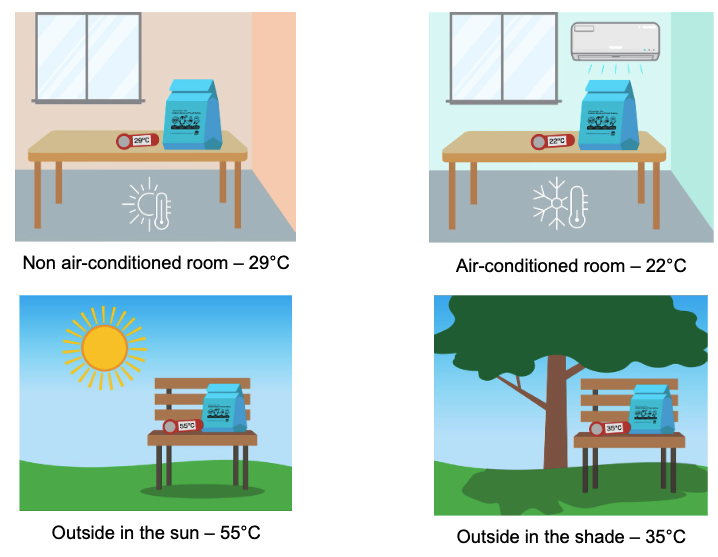
The following temperatures represent what can happen on a hot Sydney summer day (worst case).
The following temperatures represent what can happen on a hot Sydney summer day (worst case).
Numbers of bacteria in cut watermelon, without anything to keep it cool, were 13 times higher by 2pm, but only 2 times higher with the ice brick.
Lunches with the ice brick were also six to 10 degrees cooler than those without.
The warmer food is, and the longer it stays warm, the more bacteria grow. And if there are illness-causing bacteria present, they might grow too and make children sick.
The simplest prevention is keeping lunch boxes cold with an insulated bag and ice brick or frozen drink.
Join us at the Easter Show and show us your hands!
Washing hands and food safety go hand in hand – which is why we’ll once again host our popular hand washing stand at this year’s Sydney Royal Easter Show.
Using Glitterbug potion and UV lights, we’ll take visitors through the 5 steps of effective handwashing and uncover how well they wash their hands before handling food – do they have it covered?

Glitterbug potion under UV lights.
Glitterbug potion under UV lights.
Expert Food Authority staff will be there to provide food safety advice and answer questions from budding hand hygiene heroes.
Join us from Friday 22 March to Tuesday 2 April – just follow the animal walk footprints and you’ll find us in the Woolworths Ag Discovery pavilion.
You can explore the Sydney Royal Easter Show before your visit on the Sydney Royal Easter Show website.
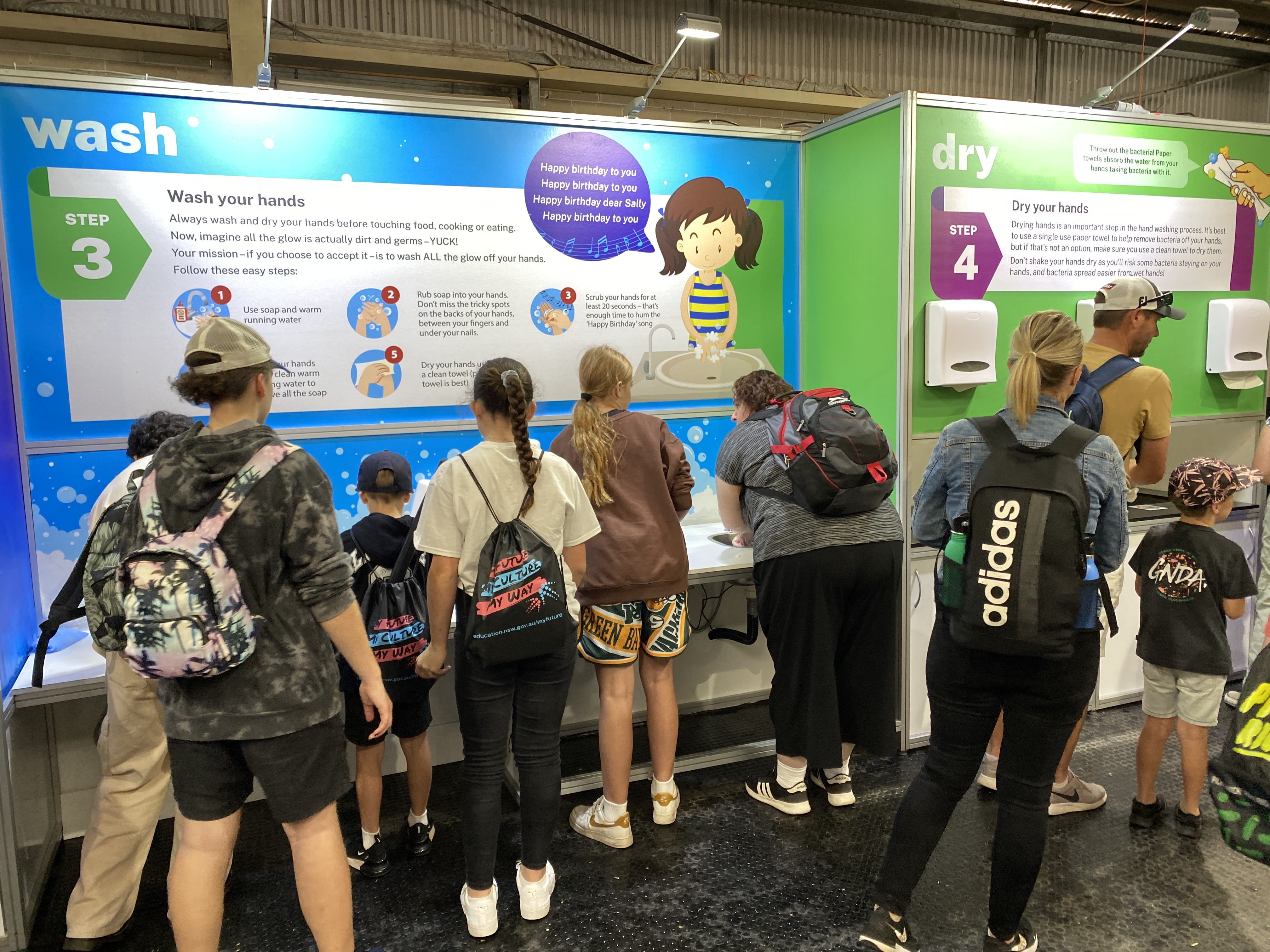
Cracker wins for champion cheese
Bega Cheese and Berrys Creek Gourmet Cheese won the NSW Food Authority perpetual trophies at the 2024 Sydney Royal Cheese and Dairy Produce Show last month.
Bega Cheese’s Rindless Vintage was named Champion Cheddar Cheese, while Berrys Creek’s Oak Blue won the Champion Specialty Cheese.
We’re proud to sponsor the Royal Agricultural Society of NSW (RAS) event, which is one of the most prestigious competitions in the industry.
This year’s show attracted more than 530 tasty entries, with 89 per cent of exhibits earning a bronze, silver or gold medal.
See all the winners on the RAS website.

CEO NSW Food Authority Dr Lisa Szabo presents the perpetual trophy to the winners.
CEO NSW Food Authority Dr Lisa Szabo presents the perpetual trophy to the winners.

CEO NSW Food Authority Dr Lisa Szabo presents the perpetual trophy to the winners.
CEO NSW Food Authority Dr Lisa Szabo presents the perpetual trophy to the winners.
Set your sights on our new site
If you haven’t visited our website for a while, now is a great time to check it out.
The site was recently updated with a fresh new look in line with NSW Government digital design standards, but it still has the same wealth of information and resources on keeping food safe, from paddock to plate.
We’re always looking for ways to improve our customer service, so if you have any feedback or requests for resources please get in touch by emailing food.contact@dpi.nsw.gov.au or using our online form.
Digging into the process of secure burials
Did you know there is a robust process to ensure noncompliant food and beverages do not find their way back into the marketplace?
‘Secure burial’ procedures must be followed when an authorised officer seizes food, vehicles, equipment, labelling or advertising materials that do not comply with relevant legislation or are evidence for an offence.
First, the authorised officer arranges to collect the seized goods and checks them against a seizure notice and Seizure Action Summary sheet. They and another witness follow the waste transport vehicle to the waste facility to observe and document the dumping procedure.
The vehicle is weighed before the goods are dumped in a designated landfill area, where a bulldozer immediately crushes and covers the load, rendering it inaccessible.

File photo of a secure burial.
File photo of a secure burial.
The vehicle is weighed again on exit, with the net weight provided by the waste facility, along with any other details required.
The Seizure Action Summary sheet and any attached documentation are then filed with the NSW Food Authority.
At no time are seized items to be destroyed or disposed of without authorisation, or without a witness. Records should also be kept of how, when and where goods are disposed.
Following this process provides confidence that food presenting a health risk to consumers has no opportunity to find its way back into the marketplace.
Who does your audits?
Certain businesses can use a Regulatory Food Safety Auditor (third party auditor) instead of being audited by the NSW Food Authority.
Using a third party auditor has a range of benefits, including fixed (or negotiated) fees, the ability to schedule audits, and each audit you have the same auditor who is a direct point of contact for audit outcomes.
Licensed business sectors eligible to use a third party auditor include:
- food service to vulnerable persons (hospitals and aged care)
- cold food storage
- dairy primary production (dairy farms)
- plant products
- seafood processing
- aquaculture with processing (excluding shellfish ready-to-eat products).
Businesses must:
- have a suitable audit and compliance history
- have received an A or B rating at their two most recent audits
- have no outstanding enforcement action
- apply to use a third party auditor using form TPA006 (PDF, 42 KB).
Full details are in the Guide to Implementing a Regulatory Food Safety Auditor System (PDF, 164 KB).
You can also reach out directly to a third party auditor by using the list on our website, where you can search by name, endorsement or region.

Retail
Food handler training proves popular
Around 140,000 people have taken advantage of our free Food Handler Basics training since it was launched in May last year.
The online training course comprises 7 modules focussed on the safe handling of food, food contamination, personal hygiene, and cleaning and sanitising.
It is not the same as Food Safety Supervisor training, which is delivered by approved Registered Training Organisations.
Food Handler Basics was developed to help businesses meet training requirements under Standard 3.2.2A of the Food Standards Code, which came into effect for most retail food businesses on 8 December 2023.
If you’re yet to find out if and how Standard 3.2.2A applies to you, everything you need to know is on our Standard 3.2.2A webpage.
New resources to strengthen allergen management in retail outlets
We recently collaborated with the National Allergy Council and Allergy and Anaphylaxis Australia to update allergen management training and assessment materials for the NSW Food Safety Supervisor program.
Registered Training Organisations (RTOs) must incorporate a range of resources into their NSW FSS course delivery on 4 key focus areas; allergen management, cleaning and sanitising, safe egg handling and Food Act offences.
The new allergen management resources include detailed information to help improve prospective Food Safety Supervisors’ understanding of food allergies and relevant laws, as well as practical guidance for allergen management and procedures.
They need to be incorporated by RTOs into NSW FSS training and assessment by 11 March 2024.
Campbelltown, Port Macquarie retail sessions well supported
Allergen management, cleaning and sanitising, Scores on Doors, and preventing foodborne illness were key topics in our most recent Retail and Food Service Information Sessions (RIS).
Held in Port Macquarie-Hastings in February and Campbelltown in September, both events were well supported by businesses within and beyond their local government areas as well local council representatives.
At Port Macquarie, the council highlighted the importance of temperature control when defrosting, cooking, storing and thawing food. The Food Authority’s acting shellfish operations manager Phil Baker’s presentation on the wet storage of shellfish was well received.
In Campbelltown, Campbelltown City Council staff gave an engaging presentation on improving food safety and recent inspection outcomes. Sydney Water discussed the commercial use of water and water efficiency, and there were information stalls from Service NSW, Sydney Water and the council.
Attendees at both events heard about the Food Regulation Partnership, current food legislation, pest control, and causes of foodborne illness, and watched hands-on demonstrations of cleaning, sanitising and handwashing.
The Food Authority holds 3 Retail and Food Service Information Sessions each year to bring together local food businesses, council EHOs and Food Authority staff and foster a culture of food safety in the sector.
Save the date for Northern Beaches RIS
The next Retail and Food Service Information Session will be held with Northern Beaches Council in Dee Why, Sydney, on Tuesday, 4 June 2024.
Retail food businesses from the Northern Beaches and surrounding area are encouraged to attend to learn how instilling a food safety culture keeps food safe and customers free from foodborne illness.
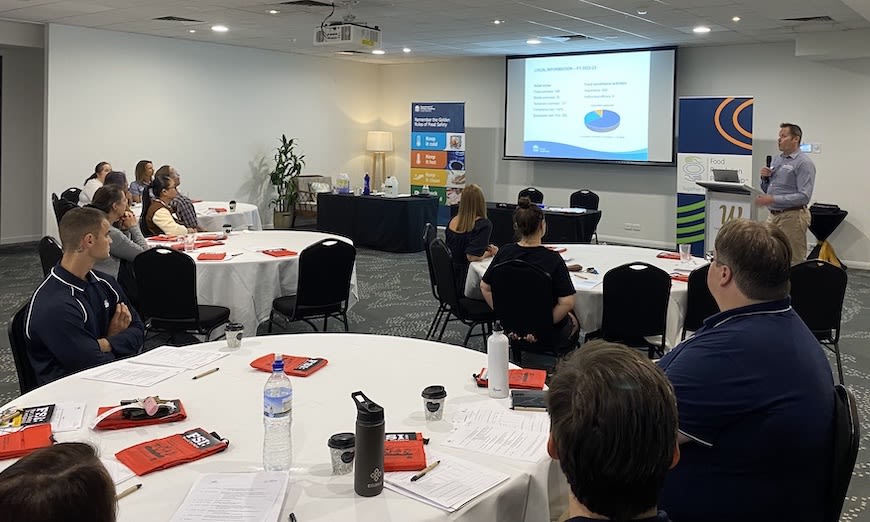
Food Authority’s Local Government Unit manager Andrew Davies presents at Port Macquarie – Hastings.
Food Authority’s Local Government Unit manager Andrew Davies presents at Port Macquarie – Hastings.
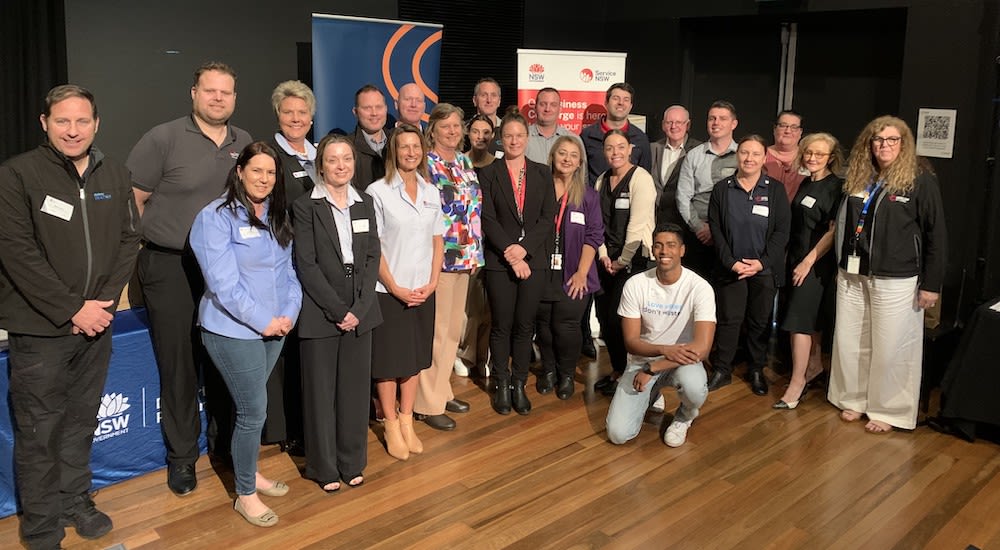
Representatives from Campbelltown City Council, NSW Food Authority, Sydney Water and Service NSW at the Campbelltown event.
Representatives from Campbelltown City Council, NSW Food Authority, Sydney Water and Service NSW at the Campbelltown event.
Meat
Inspections and audits
From October to December 2023, authorised officers conducted 301 audits and inspections of licensed meat businesses. The compliance rate remained steady at 95% compared to the same reporting period in 2022.
The main audit items attracting Corrective Action Requests during the period were for process control (failure to complete monitoring records or to identify cross contamination risks), food safety program issues, and analytical testing (high level of preservative use in processed meats).
The table below shows comparable data for compliance and audit activity in the meat sector between the same reporting periods in 2022 and 2023.
|
Reporting Period |
Oct – Dec 2022 |
Oct – Dec 2023 |
|---|---|---|
|
Audits & Inspections |
289 |
301 |
|
Compliance rate |
95% |
95% |
Seafood and Shellfish
Inspections and audits
From October to December 2023, the Food Authority conducted 113 audits and inspections of licensed seafood businesses resulting in a 1% increase in compliance, compared to the same reporting period in 2022.
The main areas for critical defects were analytical testing, process control (failure to complete monitoring records), and food safety program issues.
The table below shows yearly comparable data for compliance and audit activity in the seafood sector between the same reporting periods in 2022 and 2023.
|
Reporting Period |
Oct – Dec 2022 |
Oct – Dec 2023 |
|---|---|---|
|
Audits & Inspections |
75 |
113 |
|
Compliance rate |
95% |
96% |
NSW Shellfish Committee meeting outcomes
The NSW Shellfish Committee, which provides advice to the Minister and the Food Authority on the operation of the NSW Shellfish Program, met on 8 November and 28 February 2024.
Outcomes for the November meeting are available to view on the Food Authority website. Agenda items included detection of Steinhausia in Mussels, the NSW Oyster Conference 2024, industry communication pathways, reporting foodborne illness events and Vibrio risk management. Keep an eye on the NSW Shellfish Committee page for February meeting outcomes.
The committee will next meet on 22 May 2024.
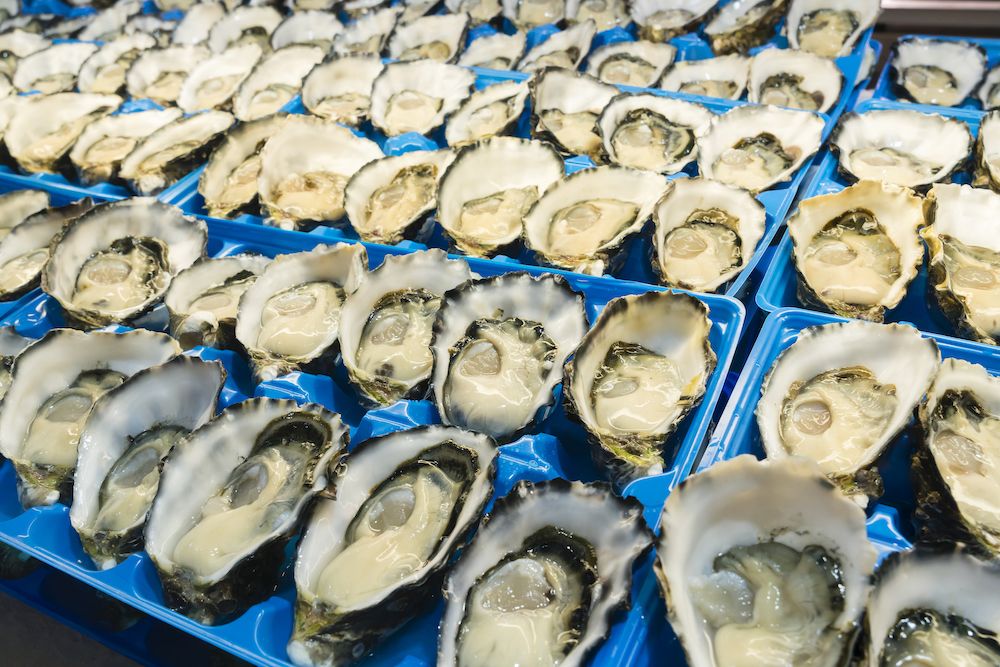
New requirements for shellfish wet storage
New requirements for shellfish wet storage systems in NSW are expected to be finalised in the coming weeks.
The requirements aim to provide a clearer and more consistent approach to the wet storage approval process while managing potential food safety and biosecurity risks.
The Food Authority will advise shellfish growers once the requirements are finalised and in effect.
Workshops are also planned for later this financial year to help growers understand the new requirements.
Help protect NSW abalone stocks
NSW Department of Primary Industries (NSW DPI) has banned the importation of live abalone from South Australia following a detection of Abalone Viral Ganglioneuritis (AVG) near Port MacDonnell. This is the first detection of AVG in South Australia.
AVG is a viral disease that impacts blacklip, greenlip and hybrid abalone. Symptoms can include curling of the foot, swelling of the mouth, weakness, and death of abalone.
There is no evidence that AVG has any effect on human health.
If you hold or sell abalone, you can protect your business and help stop the spread of AVG by:
- washing hands and/or gloves thoroughly with warm soapy water after handling abalone
- disposing of all waste into a covered bin that goes to landfill
- disposing of water from holding tanks into the sewerage system
- thoroughly cleaning equipment used for holding and transporting abalone with a detergent and warm water, rinsing in fresh water and allowing to dry
- wiping areas of transport vehicles and containers/bins that come into contact with abalone with diluted detergent or disinfectant.
If you suspect AVG in your tanks NSW DPI can assist. If you observe sick or dying abalone, contact the 24-hour Emergency Animal Disease Hotline on 1800 675 888 for advice.
More information about AVG, and the biosecurity control order (PDF, 258 KB), is on the NSW DPI website.
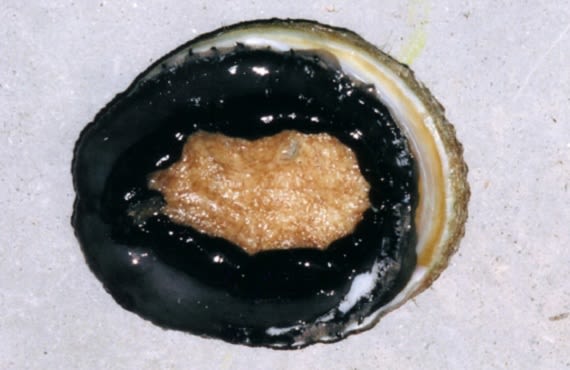
Diseased abalone displaying an AVG symptom - curling of the foot (photo: DPI Victoria).
Diseased abalone displaying an AVG symptom - curling of the foot (photo: DPI Victoria).
Guideline for seafood retailers update
Our Guideline for seafood retailers was recently updated to include new requirements under Standard 3.2.2A of the Food Standards Code (the Code).
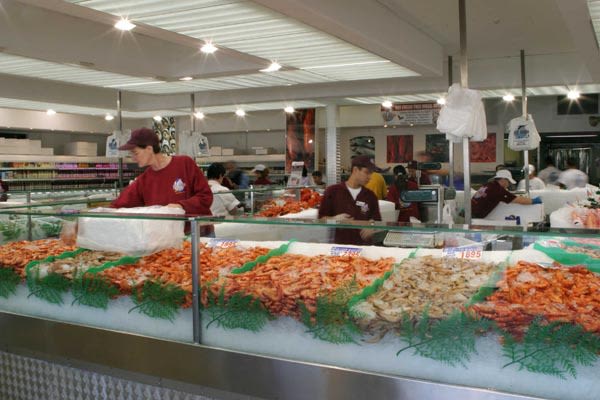
The comprehensive guideline was designed specifically to assist seafood retailers in understanding the requirements of the Code that are relevant to their business.
Access the guideline via our seafood retailers webpage or Guideline for seafood retailers - Compliance with the Food Standards Code (PDF, 277KB)
Dairy
Inspections and audits
From October to December 2023, the Food Authority conducted 98 audits and inspections of licensed dairy businesses resulting in an improvement in compliance, up 3% to 98% overall, when compared with the same period in 2022.
The main audit items attracting Corrective Action Requests during the period were for hygiene and sanitation and food safety program.
The table below shows yearly comparable data for compliance and audit activity in the dairy sector between the same reporting periods in 2022 and 2023.
|
Reporting Period |
Oct – Dec 2022 |
Oct – Dec 2023 |
|---|---|---|
|
Audits & Inspections |
65 |
98 |
|
Compliance rate |
95% |
98% |
Eggs
Inspections and audits
From October to December 2023, the Food Authority conducted 53 audits and inspections of licensed egg businesses resulting in a 1% drop in compliance, compared to the same reporting period in 2022.
The Food Authority has moved to a risk-based, outcome-focused compliance model, and consistent with the priority classification scheme for an egg business (currently P2), audit frequency will return to every 2 years. Complaints, inspections, and investigations relating to egg businesses will continue to be managed on an as needs basis.
The table below shows yearly comparable data for compliance and audit activity in the egg sector between the same reporting periods in 2022 and 2023.
|
Reporting Period |
Oct – Dec 2022 |
Oct – Dec 2023 |
|---|---|---|
|
Audits & Inspections |
64 |
53 |
|
Compliance rate |
96% |
95% |
Salmonella Enteritidis testing reminder
Egg and poultry producers are required to conduct Salmonella Enteritidis (SE) environmental testing every 12-15 weeks under the Biosecurity (Salmonella Enteritidis) Control Order.
Environmental testing for SE is an important form of early detection that can mitigate the risk of human illness from consuming eggs and egg products.
For more information please visit the NSW Salmonella Enteritidis webpage and review the how to comply guide (PDF, 7.3 MB).

Plants
Inspections and audits
From October to December 2023, the Food Authority conducted 24 audits and inspections of licensed plant product businesses resulting in a 3% increase in compliance, compared to the same reporting period in 2022.
The main audit items attracting Corrective Action Requests during the period were for failing to comply with Food Standards Code and hygiene and sanitation issues.
The table below shows yearly comparable data for compliance and audit activity in the plant sector between the same reporting periods in 2022 and 2023.
|
Reporting Period |
Oct – Dec 2022 |
Oct – Dec 2023 |
|---|---|---|
|
Audits & Inspections |
18 |
24 |
|
Compliance rate |
90% |
93% |
New food safety requirements for berries, leafy vegetables and melons
New food safety standards for producers and processors of berries, leafy vegetables and melons come into effect in February 2025.
The national standards introduce new requirements for notification, traceability, safe soil, water and fertiliser use, and health, hygiene and knowledge of workers. Further requirements for leafy vegetable and melon producers and processors address more specific food safety risks.
The standards aim to strengthen food safety and traceability throughout the food supply chain.
Fresh produce that is contaminated poses a health risk to consumers, with foodborne illness linked to fresh berries, leafy vegetables and melons costing the Australian economy about $20 million each year.
The Food Authority is working on how the standards will be implemented in NSW.
For more information visit Food Standards Australia New Zealand’s Food safety requirements for horticulture page.
Vulnerable People
Inspections and audits
From October to December 2023, the Food Authority conducted 295 audits and inspections of licensed hospitals and aged care businesses resulting in a 1% increase in compliance, compared to the same reporting period in 2022.
The main Corrective Action Requests issued during the reporting period were for pre-requisite programs (failing to correctly implement calibration program) and process control (failure to complete monitoring records at the frequency required in the food safety program).
The table below shows yearly comparable data for compliance and audit activity in the vulnerable persons sector between the same reporting periods in 2022 and 2023.
|
Reporting Period |
Oct – Dec 2022 |
Oct – Dec 2023 |
|---|---|---|
|
Audits & Inspections |
339 |
295 |
|
Compliance rate |
98% |
99% |
TPAs
TPA audit data
Between 1 October to 30 December 2023, third party auditors (TPAs) conducted 312 audits. Of these, 310 were acceptable audits, and 2 unacceptable.
The table below outlines the results across the relevant industries.
|
Total audits |
Acceptable audits |
Average audit hours |
|
|---|---|---|---|
|
Dairy farms |
74 |
74 |
1.8 |
|
Cold stores |
1 |
1 |
6.5 |
|
Seafood processing |
2 |
2 |
4.1 |
|
Vulnerable Persons |
234 |
232 |
3.8 |
|
Plant products |
1 |
1 |
3 |
|
TOTAL |
312 |
310 |
TPA workshop to focus on the future of food
Advances in food safety standards and the use of Artificial Intelligence in food transport are among the topics to be explored at the 2024 Third-Party Auditor (TPA) Workshop on 9 May.
The annual gathering of NSW Food Authority representatives and regulatory food safety TPAs shares industry updates, information and technical expertise.
This year’s focus is ‘The Future of Food’, with the workshop featuring a keynote speaker, presentations from Food Authority staff and an audience Q and A.
The event is part of the Food Authority’s commitment to ensuring its TPAs stay well-informed about relevant issues and continue to achieve effective safety outcomes across the food business community.
An invitation will be sent to all registered TPAs soon. Current TPAs can email bfs.education@dpi.nsw.gov.au for further information about the workshop.
Manufacturing
Plain English Allergen Labelling now in force
Manufacturers of packaged food are now required to comply with Plain English Allergen Labelling (PEAL) requirements.
Food packaged and labelled before 25 February 2024 may be sold for 2 more years under a stock-in-trade period.
PEAL specifies how allergens must be declared on food labels, using prescribed plain English terms in bold font.
The Food Authority’s Generate an allergen declaration tool can help manufacturers comply – simply enter an ingredient to see an example of how allergens must be displayed.
Visit to Central Coast Mars factory
Food Authority staff and NSW Health colleagues had the opportunity to tour the Mars factory at Berkeley Vale, NSW Central Coast, last month. Mars showcased their strict food safety measures and culture that underpin the manufacturing of all product lines.
Mars also provided an engaging overview of their strategies and company philosophy around nutrition and future sustainability goals.
Food Authority principal food safety scientist Craig Shadbolt said the visit was part of the Food Authority’s proactive engagement and industry outreach.
“Site visits such as this provide an invaluable opportunity to connect with our industry partners and gain a greater understanding of challenges and areas for future engagement,” he said.
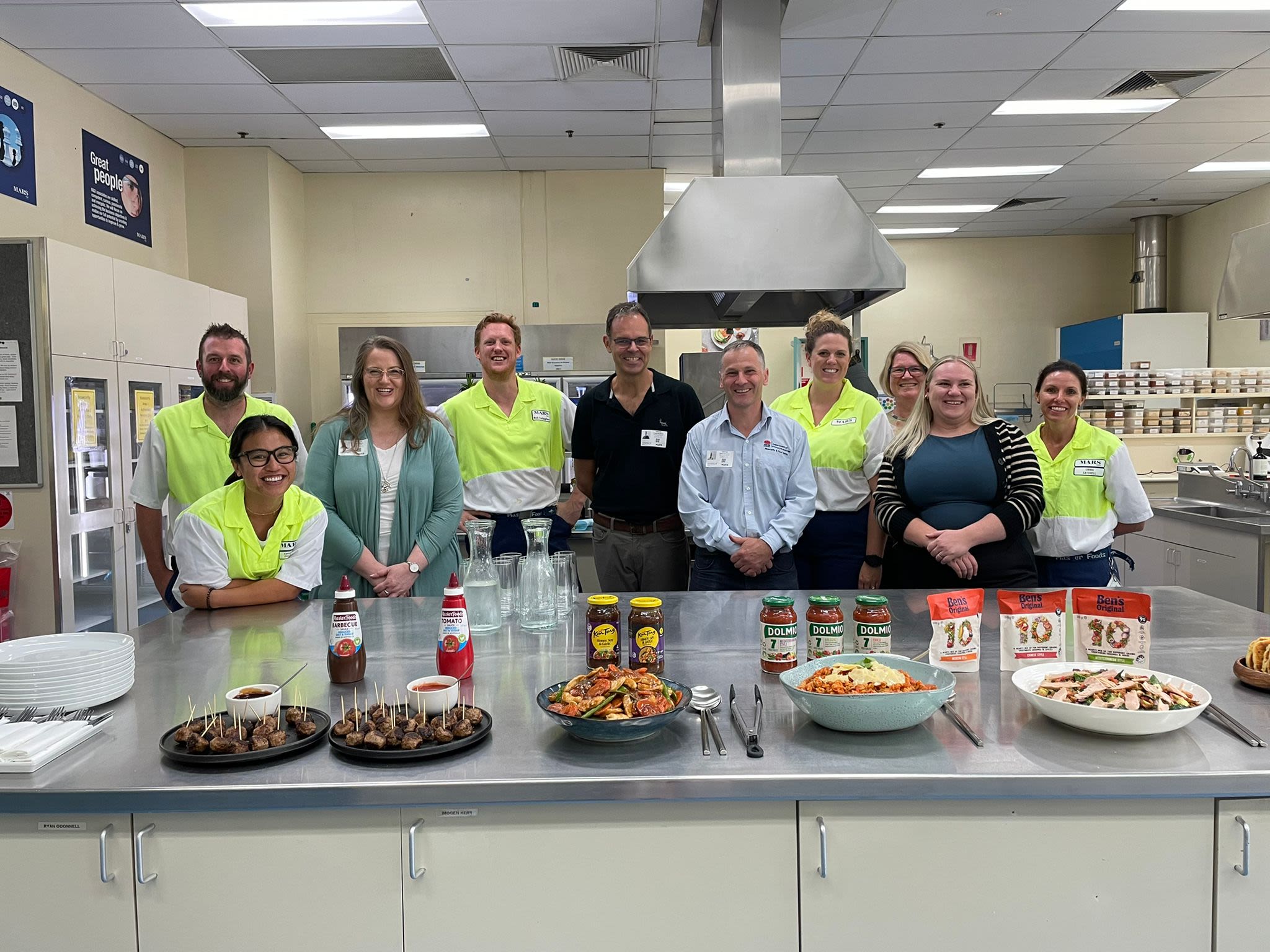
Food Authority and NSW Health representatives with staff from the Mars factory.
Food Authority and NSW Health representatives with staff from the Mars factory.
Processes | Calendar | Resources
Processes
Public consultations
Food Standards Australia New Zealand (FSANZ) is seeking feedback on a range of applications to change the Food Standards Code.
For more information see the public consultations page on the FSANZ website.
Calendar items
- Third-Party Auditor (TPA) Workshop: 9 May 2024
- Sydney Royal Easter Show: 22 March – 2 April 2024
- Foodservice Australia: 19-21 May 2024
- Retail Information Session, co-hosted with Northern Beaches Council: Dee Why, Sydney, 4 June 2024.
New/updated web pages and resources
New
- Warning and advisory statements
- Standard 3.2.2A serves up new tools for food retailers
- Study shows lunches can never be too cool for school
- Vibrio risk management for NSW oyster farmers
Updated
- Standard 3.2.2A Food Safety Management Tools
- Cafes, restaurants and retail outlets
- Seafood retailers
- Home-based and mixed business
- Caterers
- Markets and temporary events
- Mobile vendors
- Factsheet: Food safety requirements for charitable, not-for-profit organisations (PDF, 158 KB)
- Factsheet: Labelling general requirements (PDF, 118 KB)
- Factsheet: Labelling - date marking, storage conditions and directions for use (PDF, 125 KB)
- Food allergen rules
- Labelling laws
- Factsheet: Home-based food business fact sheet (PDF, 141 KB)
- Factsheet: Correct use of cutting and serving boards (PDF, 273 KB)
- Factsheet: Donating food to charities and not-for-profit organisations (PDF, 310 KB)
- Factsheet: Manufacturer and wholesaler food inspection program (PDF, 299 KB)
- Guideline for Seafood Retailers – Compliance with the Food Standards Code (PDF, 108 KB)
- Factsheet: Charity Fish Auctions (PDF, 173 KB)
- Factsheet: Ciguatera Poisoning (PDF, 150 KB)
- Factsheet: Controlling Histamine Fish Poisoning (PDF, 153 KB)
- Factsheet: Food Recalls and Withdrawals (PDF, 135 KB)
- Factsheet: Food safety tips for childcare centres (PDF, 290 KB)
- Factsheet: Doner Kebabs (PDF, 153 KB)
- Factsheet: Food Safety for Caterers (PDF, 161 KB)
- Factsheet: Food Grade Packaging (PDF, 202 KB)
- Factsheet: Low-THC Hemp as food (PDF, 231 KB)
- Lunchbox survey 2023 and experiment report (PDF, 391 KB)
Subscribe to news and alerts
Don’t miss a thing! Sign up for our custom email alerts and tips to stay informed on topics that interest you:
